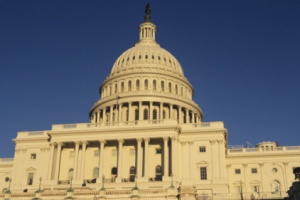 A Senate effort to reform the decades-old Toxic Substances Control Act (TSCA) is scheduled for a hearing next week in the House.
A Senate effort to reform the decades-old Toxic Substances Control Act (TSCA) is scheduled for a hearing next week in the House.
The controversial legislation, which was introduced in May by Sen. David Vitter (R-La.) and the late Sen. Frank Lautenberg (D-N.J.), will likely get a hearing by the House Energy and Commerce subcommittee. While the bill would give the EPA more power to review and regulate chemicals that pose a hazard to human health and the environment, its detractors worry that it would usurp the ability of states to enact their own, more restrictive laws and that it would not adequately protect certain especially vulnerable groups, like pregnant women.
Both proponents and opponents of the Chemical Safety Improvement Act agree on one thing: that the TSCA, which was passed in 1976, needs updating.
Safer Chemicals, Healthy Families, a coalition advocating chemical safety, said the bill is “a sincere effort to cut through Washington gridlock on the urgent issue of protecting the public from toxic chemicals,” but urges revisions that would toughen up the the legislation in some critical areas.
The American Chemistry Council (ACC) says that over time, confidence in EPA’s regulation of chemicals has eroded, putting pressure on individual state legislatures to pass their own chemicals management laws and on retailers to pull products from the shelves, “often based on the claims of activists rather than scientific conclusions.”
“As a result, the regulatory landscape and marketplace have become fractured and contradictory in some cases,” according to a statement by the ACC. “After decades of implementation, it has become apparent that TSCA needs updating to reflect advances in science and technology, as well as today’s public expectations of vigorous government oversight.”
Representatives from both organizations are expected to testify at the hearing, which will be the first time the legislation will be examined by the House.
Vitter and other legislators say they’ll work on revisions of the bill that would allow states some degree of regulatory authority over chemicals.

